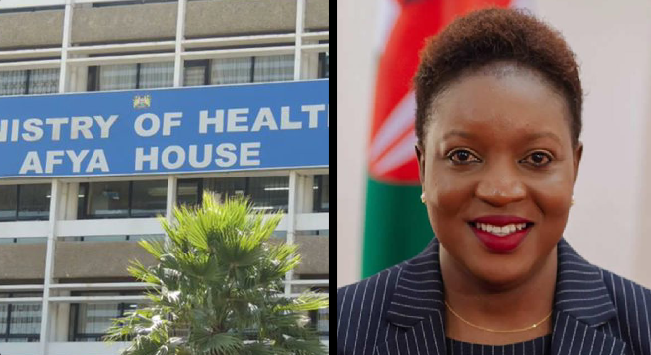A fresh scandal involving the procurement of HIV rapid testing kits worth approximately KES 2.5 billion has engulfed the Kenya Medical Supplies Authority (KEMSA) and the Ministry of Health.
This controversy surfaces just months after senior government officials were implicated in another high-profile scandal involving a KES 3.7 billion tender for long-lasting mosquito nets.
The mosquito nets scandal led to KEMSA losing the procurement opportunity after donors accused ministry officials of tampering with the specifications.
In response to the uproar, the government took swift action to rectify the situation, resulting in the dismissal of several top officials at KEMSA and within the Ministry.
Despite these measures, the Ministry of Health is now embroiled in yet another procurement controversy, this time concerning the manipulation of technical specifications for HIV Rapid Diagnostic Testing (RDT) kits.
The latest scandal involves allegations that Ministry officials manipulated the criteria for selecting the testing kits, which are to be funded by both taxpayers and international donors, including the Global Fund and the United States President’s Emergency Plan for AIDS Relief (PEPFAR).
The World Health Organization (WHO) provides established guidelines and protocols for selecting these testing kits, which were reportedly ignored by the Ministry.
A court petition filed by a public health advocate and a disenfranchised manufacturer details the alleged malpractices.
The petition accuses the Ministry of Health of using false and non-existent criteria to favor specific manufacturers, granting them an unfair advantage in the lucrative tender process.
These favored manufacturers have been classified as suppliers of the primary testing kits in Kenya’s national HIV testing algorithm, ensuring they supply the bulk of the kits.
Out of eight pre-qualified manufacturers, the Ministry reportedly gave preferential treatment to those with inferior and less accurate kits, which are also more expensive compared to the other options.
Notably, one of the favored manufacturers, Trinscreen, lacks a track record of supplying HIV testing kits globally.
The company was only recently pre-qualified by the WHO in 2022, and Kenya would be the first country to use these untested kits, raising concerns about their efficacy and safety.
The allegations have sparked outrage among stakeholders and the public, who are calling for accountability and transparency.
The manipulation of the tender process not only undermines the integrity of the procurement system but also puts the health of Kenyans at risk.
The use of untested kits could lead to inaccurate diagnoses, jeopardizing efforts to combat the HIV epidemic in the country.
The implications of this scandal are far-reaching. It threatens to erode trust in public health institutions and could result in the withdrawal of crucial donor support.
The Ministry of Health and KEMSA must address these allegations swiftly and thoroughly to restore confidence and ensure that future procurement processes adhere to established guidelines and ethical standards.
As the court proceedings unfold, all eyes will be on the Ministry of Health and KEMSA to see how they respond to these serious accusations.
The outcome of this case could set a significant precedent for transparency and accountability in Kenya’s public procurement system, particularly in the health sector.
It is imperative that the government takes decisive action to prevent such scandals from recurring and to safeguard the health and well-being of its citizens.





















Add Comment